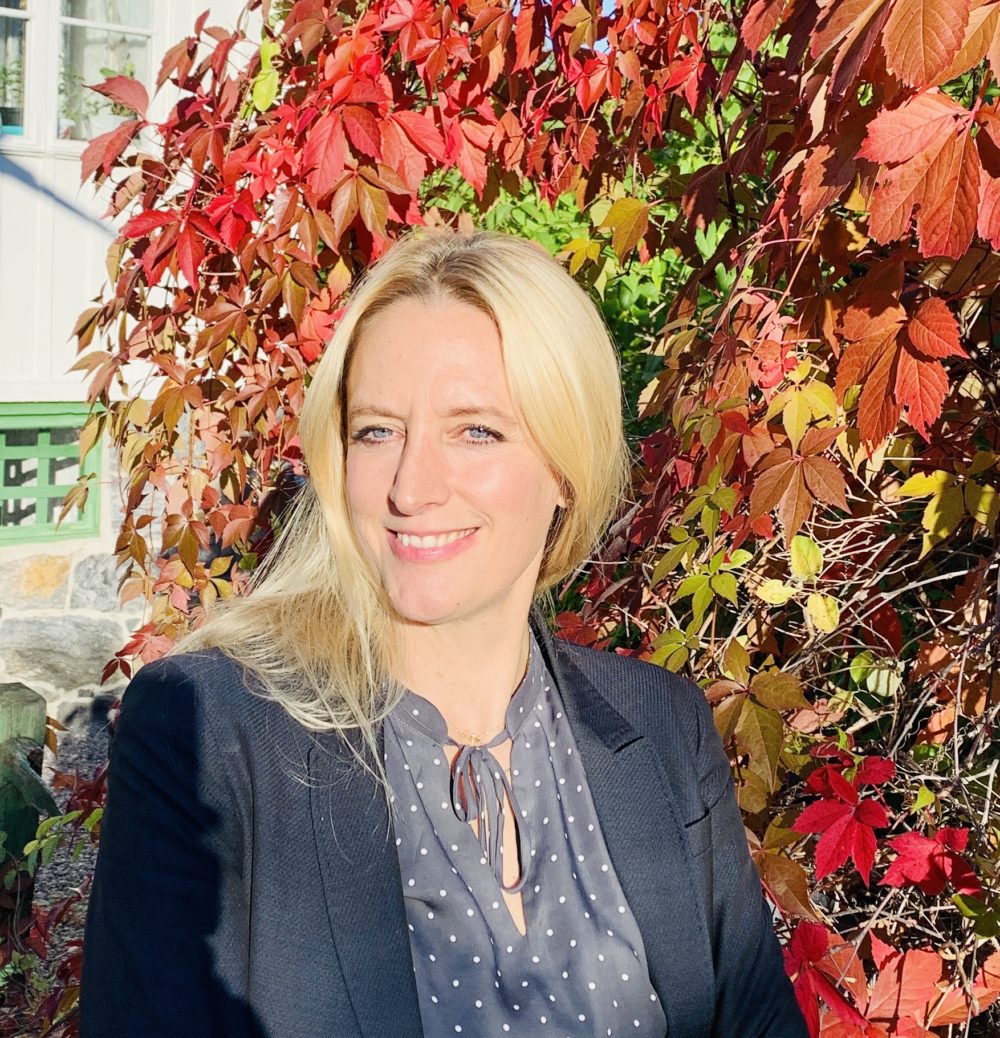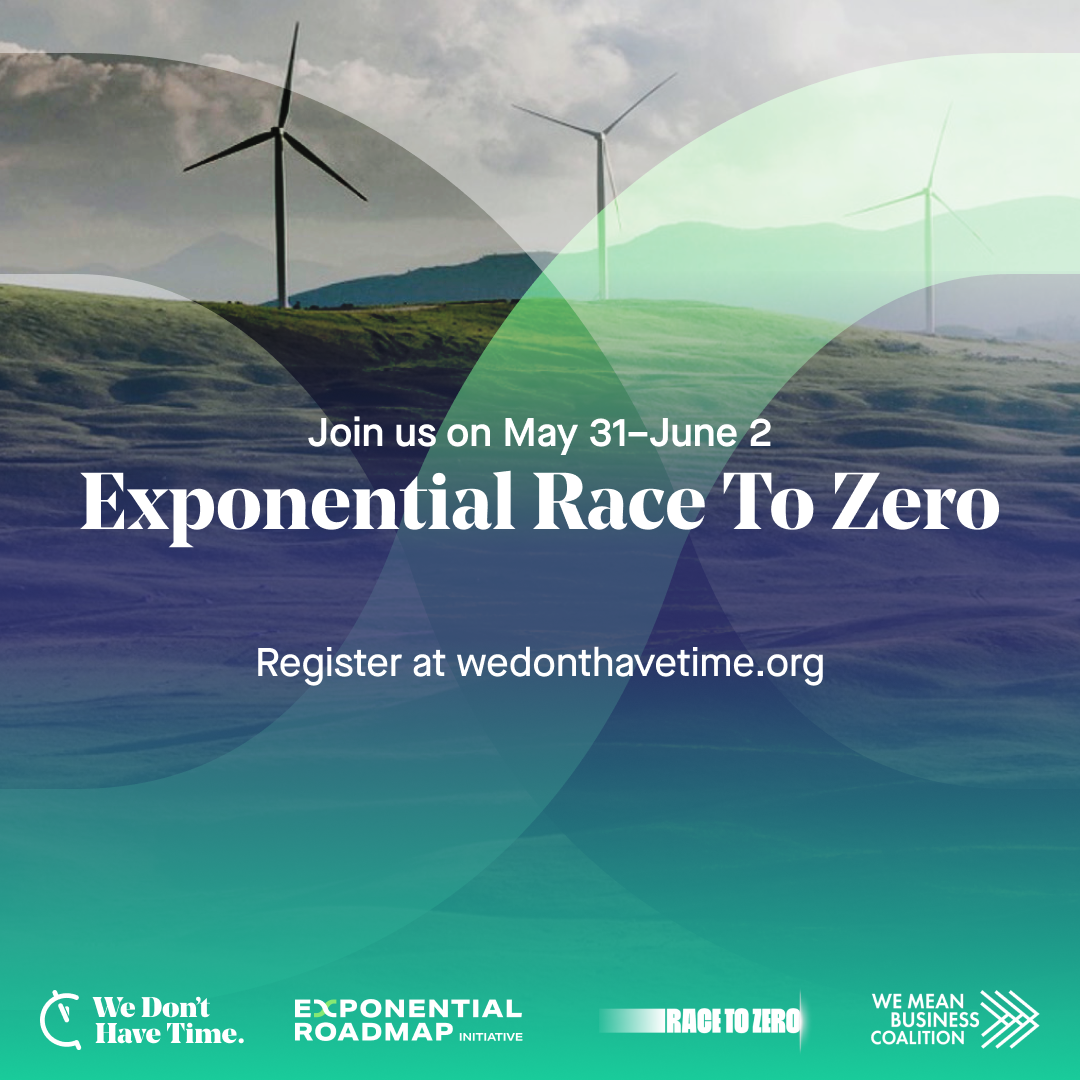The SME Climate Hub welcomes support from Microsoft
The SME Climate Hub welcomes Microsoft to the 1.5°C Supply Chain Leaders initiative, a fast-growing group of multinational corporations committed to climate action throughout their supply chains in line with the latest climate science. The initiative already consists of global giants, like Ericsson, IKEA, Telia, BT Group, Unilever, Nestlé, Telefónica and Ragn-Sells – representing a combined turnover of 402 Billion Euros. The 1.5°C Supply Chain Leaders initiative aims to accelerate climate action and support suppliers globally, including small and medium sized companies through the SME Climate Hub.
One of the most challenging aspects for corporations with science-based targets is addressing the emissions in their supply chains. Large companies within the 1.5°C Supply Chain Leaders work together with their suppliers to increase climate action among small- and medium-sized enterprises (SMEs) through the SME Climate Hub, where SMEs can make a climate commitment and access free, best-in-class tools and resources. The SME Climate Hub is an initiative among the International Chamber of Commerce (ICC), the Exponential Roadmap initiative, the We Mean Business coalition and the United Nations Race to Zero, with the support of Oxford University and Normative. The goal is to mobilize and support SMEs around the world to build business resilience.
“We are thrilled to welcome Microsoft to the 1.5°C Supply Chain Leaders and to continue to build this initiative, together with other front runners in climate action. To halve global greenhouse gas emissions before 2030 we need to accelerate next generation value chains. And that will require radical collaboration,” says Johan Falk, Head of Exponential Roadmap Initiative and lead author of the 1.5°C Business Playbook.
“The scientific consensus is clear. If we don’t curb emissions, and temperatures continue to climb, science tells us that the results will be catastrophic. We look forward to collaborating with other global corporate climate leaders and learning from each other to support our suppliers in taking climate action in line with science. Together we can move quicker,” says Lucas Joppa, chief environmental officer at Microsoft.
Microsoft has already announced ambitious goals towards becoming carbon negative, water positive and zero waste by 2030. The 1.5°C Supply Chain Leaders group aims to create collective action for supporting decarbonising the full value chain and urge suppliers to set climate targets in line with science.
The 1.5°C Supply Chain Leaders will also encourage small and medium-sized suppliers to make the SME Climate Commitment and take climate action through the SME Climate Hub, a one-stop-shop for businesses with fewer than 500 employees to make an internationally recognised climate commitment.
“Corporations from every industry and region of the world are committing to net-zero ambition because it’s good for business, people and the planet, but they won’t be able to reach their net-zero targets if their suppliers don’t decarbonize too. I applaud Microsoft for its bold leadership in tackling supply chain emissions through the 1.5C Supply Chain Leaders and SME Climate Hub, and call on other corporations to follow suit in the lead-up to COP26,” said María Mendiluce, CEO of the We Mean Business coalition.
“The 1.5°C Supply Chain Leaders demonstrate the vital role that multinationals can play in accelerating climate action across their value chain by supporting and encouraging their suppliers to align with 1.5°C targets e.g. through the SME Climate Hub. Given the amount of suppliers multinational companies have, and with their huge purchasing value, this will be an exciting turning point – and we look forward to seeing exponential growth in corporate net zero commitments as we work towards COP26,” said Nigel Topping, UK High Level Climate Action Champion for COP26.
The 1.5°C Supply Chain Leaders have made the following commitment:
- We have all committed to reducing our greenhouse gas emissions across our value chain in line with the 1.5°C ambition. We integrate climate in our business strategy and drive climate action as part of our wider role in society (as members of the Exponential Roadmap Initiative and/or Business Ambition for 1.5°C)
- We will work together with our suppliers and business partners to join us on this journey by taking action aiming to halve greenhouse gas emissions before 2030, reaching net-zero before 2050 and communicate progress annually, e.g. as outlined in the SME Climate Commitment. To promote, reward and inspire action, we plan to make climate related targets and performance a key supplier purchasing criteria within one year.
- We recognize the challenge this poses for our suppliers and we will support them, working together to reach our shared goals. In addition, we will support SMEs globally through the SME Climate Hub with tools, knowledge and best practice for implementing a robust climate strategy, to support broad action.
About the SME Climate Hub:
The SME Climate Hub is an initiative of the International Chamber of Commerce, the Exponential Roadmap Initiative, the We Mean Business coalition and the United Nations Race to Zero campaign, with the support of Oxford University and Normative. This partnership is an exercise in radical collaboration that opens the doors for SMEs to join the United Nations Race to Zero campaign – an international campaign that brings together an unprecedented coalition of real economy actors and 120 governments committed to achieve net-zero emissions by no later than 2050. Find out more at: www.smeclimatehub.org
About 1.5°C Supply Chain Leaders:
The 1.5°C Supply Chain Leaders was founded by the Exponential Roadmap Initiative together with Ericsson, IKEA, Telia, BT Group and Unilever and is supported by the International Chamber of Commerce and the We Mean Business Coalition. The 1.5°C Supply Chain Leaders will work together to reduce greenhouse gas emissions across value chains through firm action and collaboration, understanding the need to work with and support their suppliers to halve emissions before 2030 and achieve net zero emissions before 2050. Find out more at: https://exponentialroadmap.org/supply-chain-leaders/
About the Exponential Roadmap Initiative:
The Exponential Roadmap Initiative brings together innovators, scientists, companies and NGOs which are taking action in line with the 1.5°C ambition, with the mission to halve emissions before 2030 through exponential climate action and solutions. The initiative is an official partner of United Nations’ Race to Zero campaign and TED Countdown, and is a founding partner of the SME Climate Hub. Find out more at: www.exponentialroadmap.org.
About the We Mean Business coalition:
The We Mean Business coalition is a global coalition of nonprofit organizations working with the world’s most influential businesses to take action on climate change. The coalition brings together seven organizations: BSR, CDP, Ceres, The B Team, The Climate Group, The Prince of Wales’s Corporate Leaders Group and the World Business Council for Sustainable Development. Together we catalyze business action to drive policy ambition and accelerate the transition to a zero-carbon economy. Find out more at: wemeanbusinesscoaltion.org
About the 1.5°C Business Playbook:
All companies and organisations must halve emissions before 2030 and tech net-zero emissions before 2050. The 1.5°C Business Playbook guides companies and organisations of all sizes to exponential climate action and helps them align with the 1.5°C ambition. It is a concrete tool to facilitate the first step of halving emissions and integrate climate in strategy. It is grounded in the latest science and focuses on simplicity and speed. Find out more: exponentialbusiness.org
About the UNFCCC Race to Zero Campaign:
The UNFCCC Race to Zero campaign is an international campaign that brings together an unprecedented coalition of real economy actors and 120 governments committed to achieve net zero carbon emission by no later than 2050. These real economy actors include: 2,360 companies, 708 cities, 163 investors, 24 regions, 624 educational institutions and 39 healthcare institutions – creating the largest ever alliance committed to achieving net zero carbon emissions by no later than 2050: the “Climate Ambition Alliance.” Race to Zero is the UN-backed global campaign rallying non-state actors – including companies, cities, regions, financial and educational institutions – to take rigorous and immediate action to halve global emissions by 2030 and deliver a healthier, fairer zero carbon world in time. All members are committed to the same overarching goal: reducing emissions across all scopes swiftly and fairly in line with the Paris Agreement, with transparent action plans and robust near-term targets. Find out more at: https://racetozero.unfccc.int
About Oxford Net Zero:
Oxford Net Zero is funded by the University of Oxford through the Strategic Research Fund. Oxford Net Zero hosts research fellows from around the world to advance solutions for achieving net zero, drawing on Oxford’s expertise in climate science and policy, in clean energy, transport and food systems, and in greenhouse gas removal and storage to champion a research programme dedicated entirely to advancing and supporting net zero commitments. Find out more at: https://www.netzeroclimate.org
For more information or interviews, please contact:
Anna Almberg, Press contact, Exponential Roadmap Initiative, Email: [email protected], tel: +46 (0)709816782
Tara Burke, press contact, the We Mean Business coalition: [email protected], +44 (0) 7747 745675




